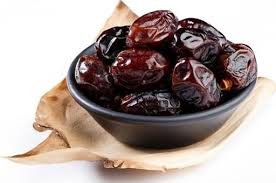Lose Weight And Get Healthy One Meal At A Period Of Time

Diet plan during pregnancy
Women’s pregnancy period is very sensitive and challenging because, in addition to meeting her own needs, a mother must also provide the necessary nutrients for the child in her womb and avoid common problems during pregnancy such as obesity, gestational diabetes, and high blood pressure in order to have a smooth delivery.
dairy products
During pregnancy, you need to consume extra protein and calcium to meet the needs of the growing fetus.
Yogurt, especially Greek yogurt, is very beneficial for pregnant women. This substance contains more calcium than other dairy products. Women who are sensitive to milk lactose can use low-lactose milk and prebiotic yogurt.
beans
This group of foods includes lentils, peas, beans, chickpeas, etc.
Legumes are an excellent plant-based source of fiber, protein, iron, folate (B9) and calcium, which your body needs more of during pregnancy.
Folate is one of the B vitamins. It is very important for the health of the mother and fetus, especially in the first trimester.
It is interesting to know, however, that most pregnant women do not consume enough folate.
sweet potato
Sweet potatoes are rich in beta-carotene, a plant compound that converts to vitamin A in the body.
Vitamin A is essential for further growth and differentiation of cells and tissues. This is very important for the healthy development of the fetus.
Pregnant women are usually advised to increase their vitamin A intake by 10-40%.
Salmon
Salmon is very rich in omega-3 essential fatty acids. These beneficial nutrients are found in large amounts in seafood and help build your baby’s brain and eyes.
However, pregnant women are usually advised to reduce their seafood intake to twice a week due to the mercury and other contaminants found in oily fish.
eggs
Eggs are the most complete food and should be included in any diet because they are rich in nutrients and protein.
They are an excellent source of choline. Choline is essential for many body processes, including brain development and health.
Broccoli and dark leafy greens
Broccoli and spinach contain many nutrients needed by pregnant women.
These vegetables contain fiber, vitamin C, vitamin K, vitamin A, calcium, iron, folate and potassium. Potassium is very useful in reducing pain caused by cramps.
berries
Berries contain water, healthy carbohydrates, vitamin C, fiber and antioxidants.
They generally contain high amounts of vitamin C, which helps your body absorb iron.
Vitamin C is also very important for skin health and immune system function.
Avocado
Avocado is a great fruit because it contains a lot of unsaturated fatty acids.
They are also very rich in fiber, B group vitamins (especially folate), vitamin K, potassium, copper, vitamin E and vitamin C.
Avocado is a good choice for pregnant women and teenagers because of its healthy fats, folate and potassium.